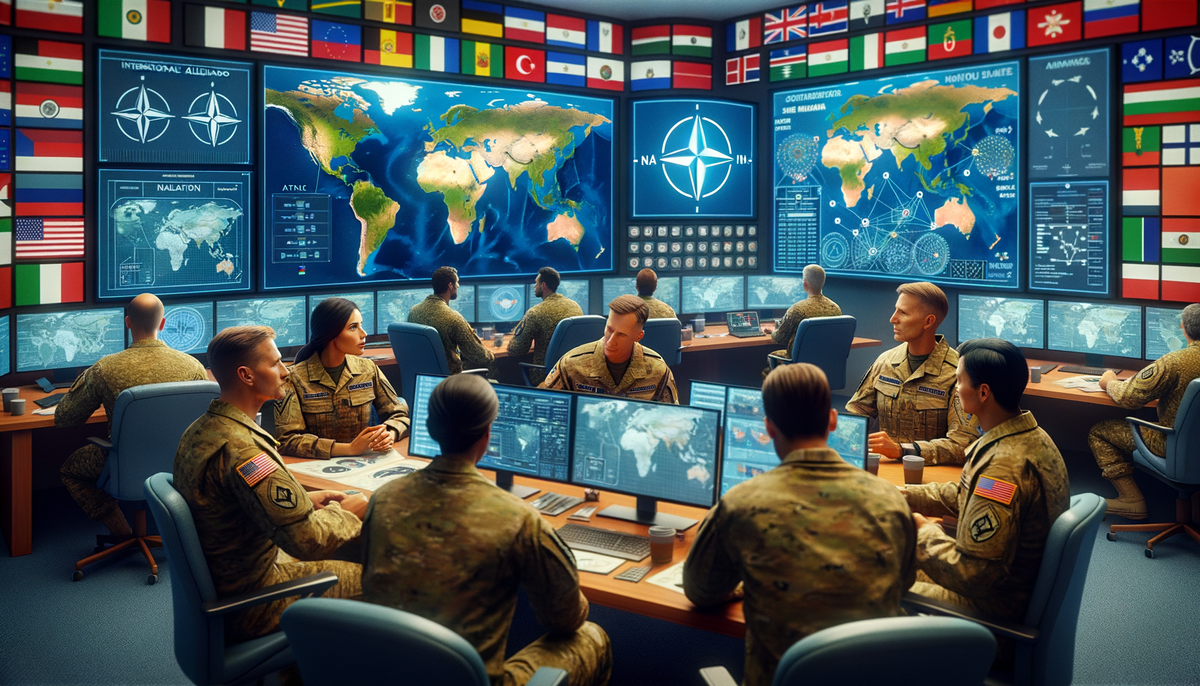Germany Intensifies Its NATO Role Amid Growing Tensions: What This Means for the Alliance
Germany is set to strengthen its military commitment to NATO, creating crucial strategic shifts within the alliance.

Germany Intensifies Its NATO Role Amid Growing Tensions: What This Means for the Alliance
In a decisive move reflecting the evolving geopolitical landscape, Germany has declared its intent to amplify its contribution to NATO's military efforts. This development comes as uncertainties around global security demands mount, underscoring NATO's significance in contemporary defense strategies.
Germany's Strategic Shift within NATO
The German government has been vocal about its plans to strengthen military capabilities as part of its NATO commitments. Chancellor Angela Merkel emphasized the necessity to uphold security amidst rising threats in Europe and beyond. German President's remarks, as captured by US News, highlight that military enhancement is a top priority. This strategic shift reaffirms Germany's pivotal role within the alliance, ensuring robust mutual defense mechanisms.
Germany's increased military role involves ramping up defense budgets and modernizing its armed forces—a move expected to fortify NATO's collective security stance. This aligns with Germany's historical commitment to peace and stability, notwithstanding its minimal military engagement post-World War II.
Implications for NATO Allies
Germany's commitment to elevating its role in NATO arrives at a time when other member states, particularly those within Eastern Europe, face escalated security concerns. Enhanced military collaboration is expected to bolster the alliance's operational readiness and deterrence capabilities against potential threats.
Practical Takeaways for NATO Professionals
NATO practitioners should note Germany's military upgrades as an opportunity to engage in collaborative exercises, share technological advancements, and develop joint defense strategies. This initiative serves as a model for balancing national sovereignty with transatlantic obligations.
The intricacies of NATO's political and military integrations require ongoing dialogue among member states. Professionals are advised to embrace Germany’s developments as a catalyst for further cooperative defense innovation.
NATO's Enduring Role in Global Security
NATO’s role as a cornerstone of international stability is reaffirmed by Germany's strategic advancements. With Article 5's collective defense clause at its core, NATO continues to adapt to modern security challenges, ranging from cyber threats to conventional military aggression. The alliance's resilience is seen in its ability to incorporate new technological paradigms and foster robust partner relations across continents.
NATO’s comprehensive defense strategy implores all member states to actively participate and invest in their defense profiles. Germany's paradigm shift illustrates how proactive policy and resource allocation can fortify the alliance's mission.
Adapting to a New Security Order
As the balance of geopolitical power fluctuates, NATO's capacity to secure its members and project stability beyond its borders is increasingly crucial. The strategic integration of diverse national defense capabilities under NATO's umbrella ensures adaptability amidst global uncertainties.
By adapting to technological innovations and engaging in multidisciplinary defense strategies, NATO members can effectively meet 21st-century challenges.
Conclusion: Engaging with NATO's Future
Germany's renewed military vigor accentuates the ongoing transformation within NATO, spotlighting the alliance's adaptability and resilience. It's paramount for NATO stakeholders, from military strategists to policymakers, to engage with these developments proactively, leveraging these changes to reinforce the alliance's foundational pillars.
In closing, we invite readers to explore NATO's dynamic evolution firsthand. By understanding and participating in these geopolitical changes, professionals can contribute to a robust, united, and forward-looking alliance. Learn more about NATO's initiatives and join the conversation on global security.




